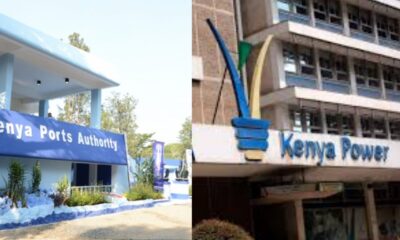Macharia Gaitho’s condemnation of the protest by Magadi residents against Tata Chemicals Magadi Ltd — “Official hooliganism is no way to solve Magadi soda impasse” (DN, April 2) — was unwarranted.
After acknowledging that Kajiado Governor Joseph ole Lenku “may very well be right in his resolve to shut down the Lake Magadi soda ash plant owned by Indian conglomerate, Tata Chemicals, over a whopping Sh17 billion and rate arrears”, Gaitho disapproves the governor’s role in leading the local community of 3,000 to enter the plant and express their anger at what they called “decades of corporate oppression and dispossession”.
For starters, land is the basis of livelihood and production for most Kenyan communities. Secondly, according to the Community Land Act of 2016, county governments hold in trust unregistered community lands and any finances payable as compensation for leases, royalties or compulsory acquisition.
The dispute between Magadi Soda and Kajiado County is about inalienable and fundamental community land rights as prescribed under the 2007 National Land Policy, which aims at ensuring that community lands “are recognised and protected and measures initiated to identify such groups and ensure their access to land and participation in decision making over land and land-based resources”.
Besides, under Article 63 of the Constitution, community land is vested and held by communities as defined under Art. 260.
Official records show the land leased by the miner is 224,991 acres but it has been using 35,000 acres — meaning that a whole 190,000 acres lie idle, useful to neither the multinational nor the local community. The lease gives myriad restrictions on what the pastoralist communities in the four group ranches — Okiramatian, Olkeri, Shompole and Oldonyonyokie — can or cannot do on or with this land.
The company also draws water from a natural source on the slopes of Nkurman escarpment, which it redistributies to residents and passes that off as corporate social responsibility.
The dispute is vexing. The Kajiado County Finance Act sought to charge industrial land rates at Sh11,000 (2013-2014) and Sh14,000 (2015-2018) per acre. For their entire land, that comes to Sh17.4 billion.
We all pay rates on commercially utilised land. It is in the law that such investors have a community obligation. To be fair, the least an investor can do before setting up a commercial venture is to pay the requisite levies. CSR can never be a substitute for taxes and levies.
A few months ago, President Kenyatta reportedly directed Interior Cabinet Secretary Fred Matiang’i to whip the county government and the company into an inter-ministerial dispute resolution meeting. That seems more viable than torturous court cases over a straightforward matter. He should hasten it.
Michael ole Tiampati, national co-ordinator, Pastoralist Development Network of Kenya.

 Politics1 week ago
Politics1 week ago
 Business News1 week ago
Business News1 week ago
 General News1 week ago
General News1 week ago
 Business News2 days ago
Business News2 days ago




